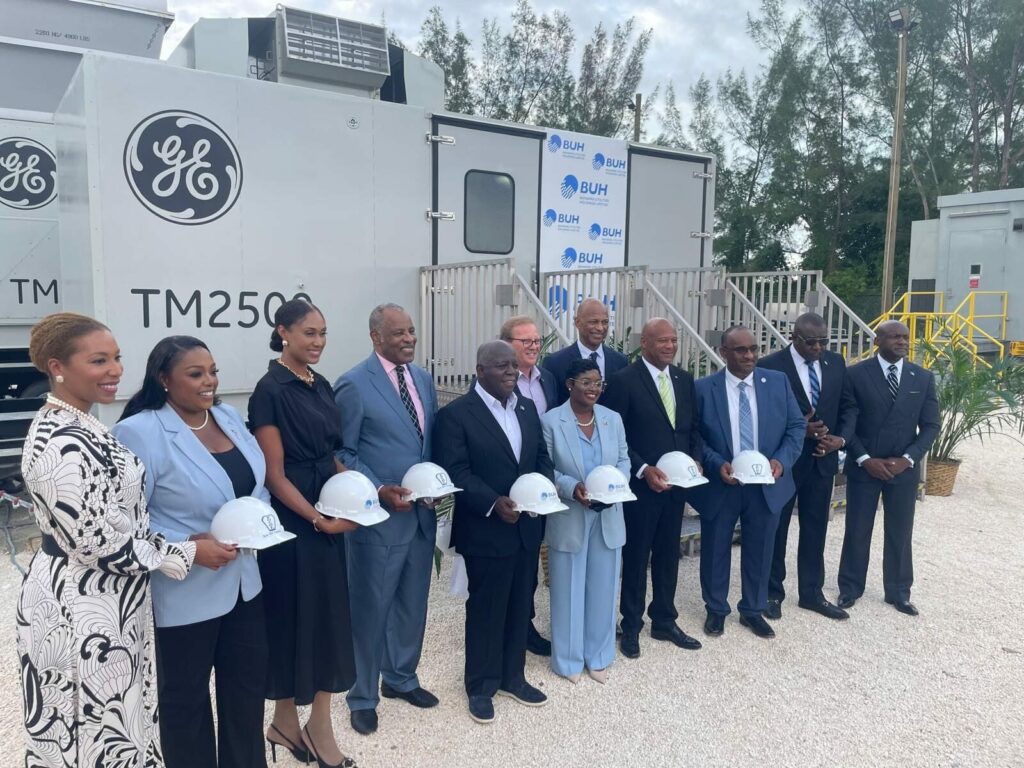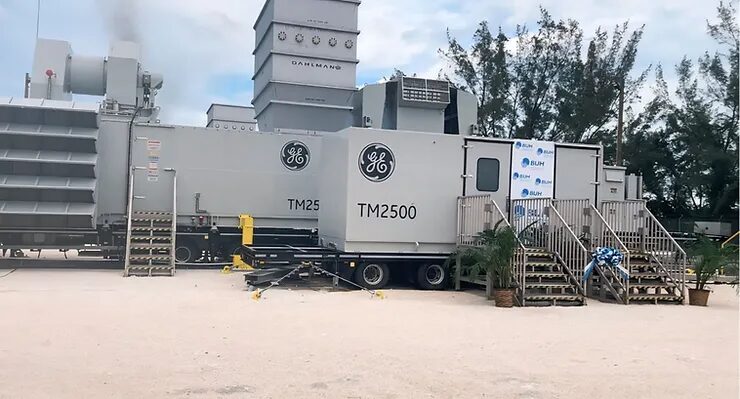
by Thegallery242.com
The government took a significant step towards enhancing the island’s energy generation capacity by unveiling two 31-megawatt dual-fuel turbine engines at Clifton Pier.
This initiative is the result of a public-private partnership between Bahamas Power and Light (BPL) and Bahamas Utilities Holdings Limited (BUC), underpinned by a comprehensive Power Purchase Agreement (PPA).
The PPA, a common framework in the energy sector, includes key performance indicators and penalties for nonperformance. It also features provisions designed to stabilize rates, safeguarding Bahamian households and businesses from substantial cost fluctuations.
“This partnership exemplifies our commitment to improving the reliability and sustainability of electricity supply on New Providence,” said Minister of Energy and Transport JoBeth Coleby-Davis. “The introduction of these dual-fuel engines will not only increase our generation capacity but also enhance the operational flexibility of our energy system.”
Currently, New Providence has an electricity capacity of 256 megawatts. The new engines are set to add an additional 62 megawatts at full capacity, directly benefiting local residents and businesses by providing a more reliable electricity service.
While the engines are designed to utilize dual-fuel technology, they will transition to operate solely on liquefied natural gas (LNG) by June 2025, with fuel supplied by Shell North America.
This shift is expected to contribute to reduced carbon emissions and further align the Bahamas with international energy trends.
“Power Purchase Agreements have transformed energy systems in many countries, including the United States, leading to more consistent electricity supply and cost savings,” noted Coleby-Davis. “We are optimistic about the positive impact this partnership will have on our community.”








